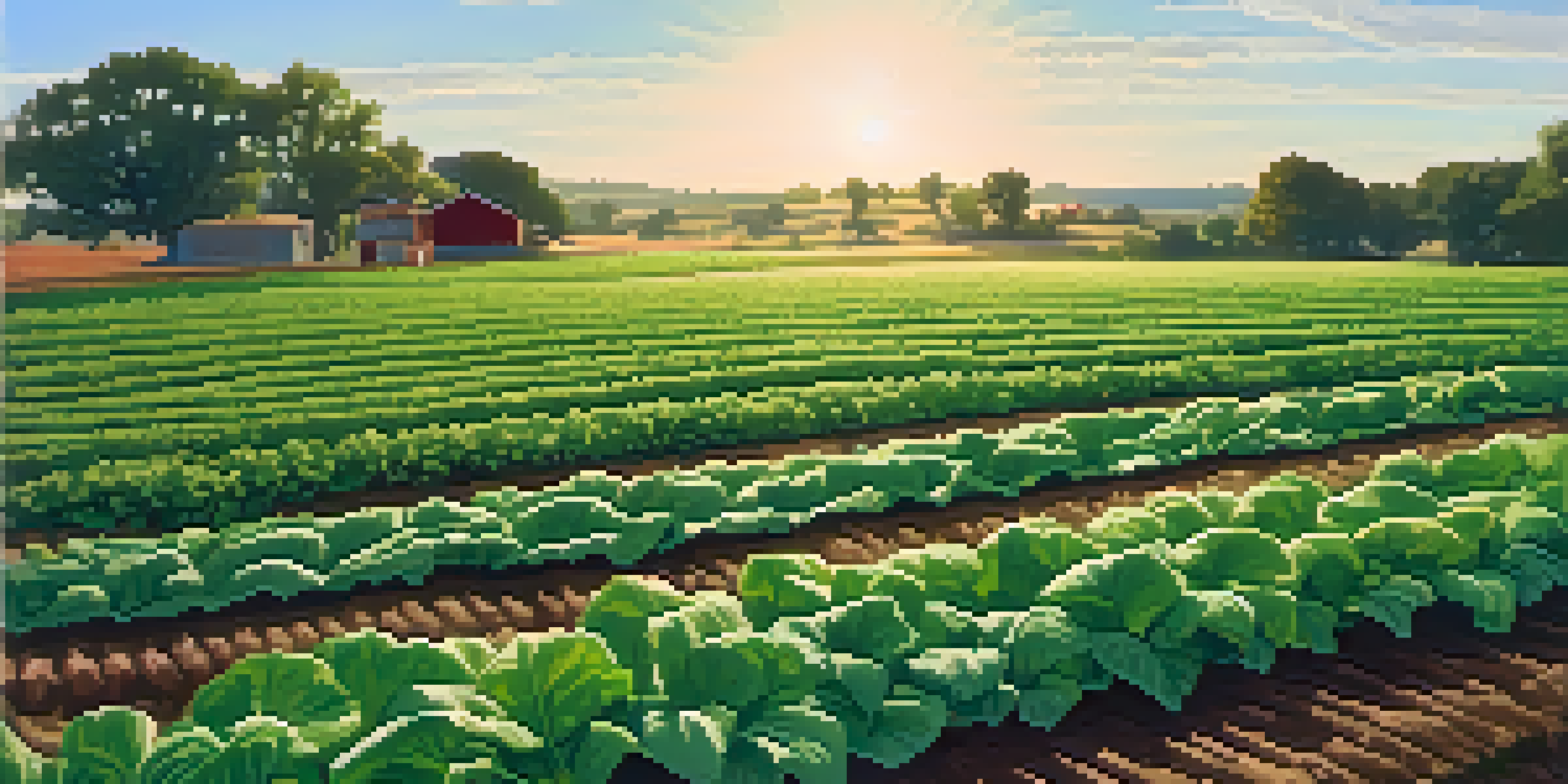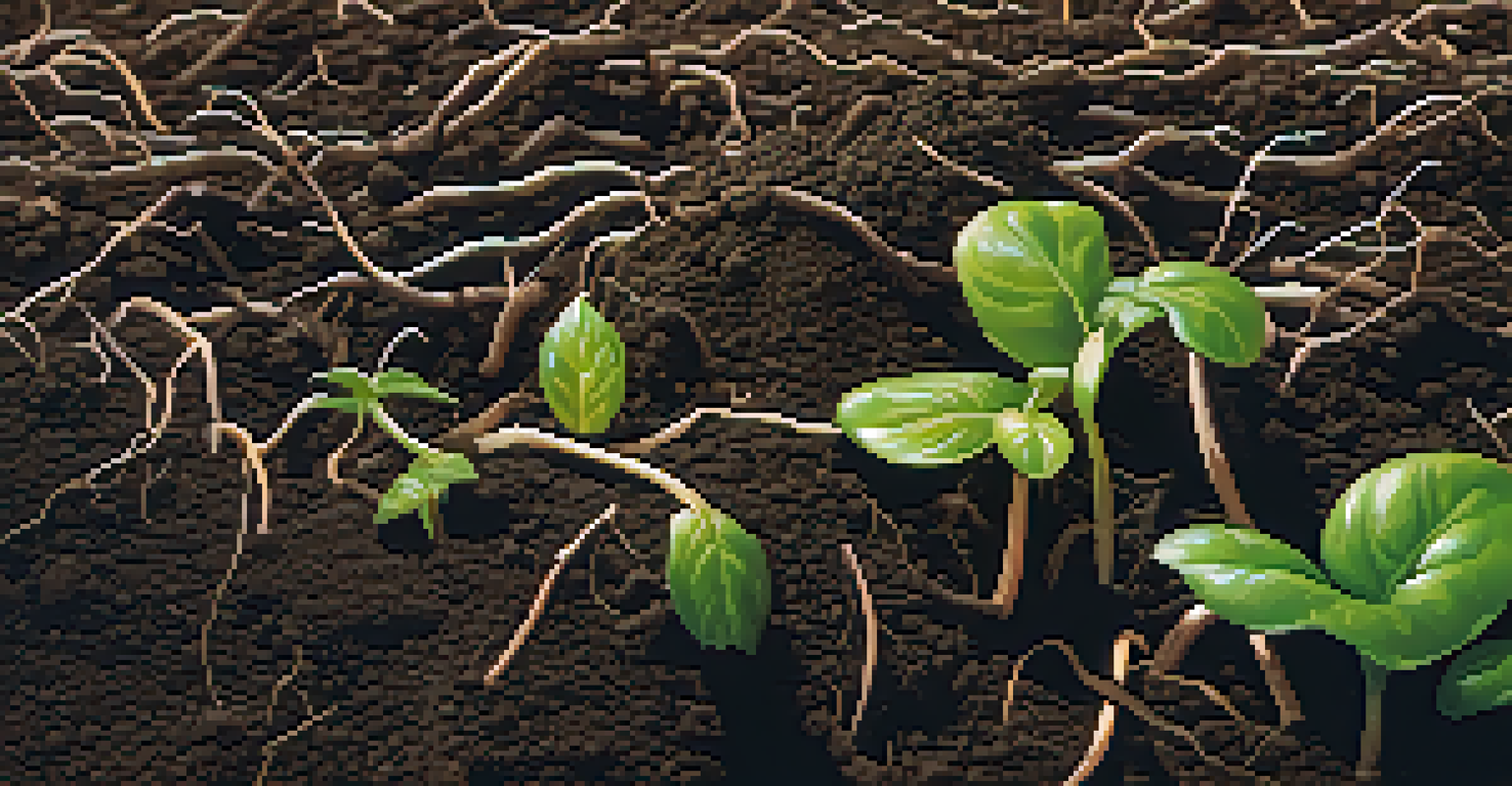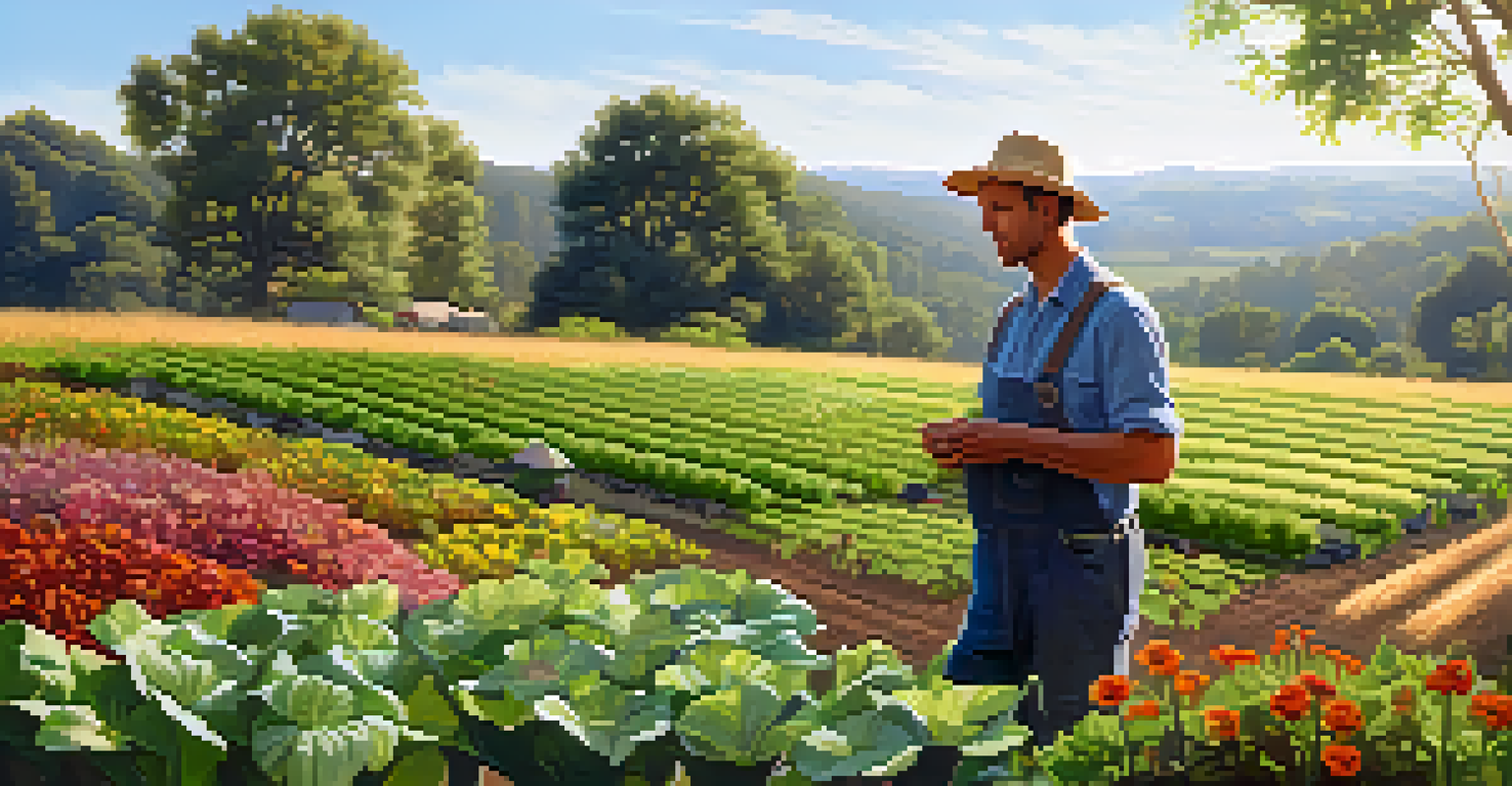Veganism and Soil Health: Cultivating a Sustainable Future

Understanding Veganism's Role in Sustainability
Veganism is more than just a dietary choice; it's a lifestyle that emphasizes sustainability. By eliminating animal products, vegans reduce the demand for livestock farming, which can be incredibly resource-intensive. This shift not only conserves water and land but also plays a crucial role in mitigating climate change.
The food choices we make can have a profound impact on the health of the planet.
The environmental impacts of animal agriculture are significant. For instance, it contributes to deforestation, greenhouse gas emissions, and pollution. By choosing plant-based diets, individuals contribute to a more sustainable food system that prioritizes environmental health.
Moreover, adopting veganism encourages the cultivation of diverse crops, promoting biodiversity. This diversity is essential for healthy ecosystems, which in turn support soil health, making a strong case for the interconnectedness of our food choices and environmental sustainability.
The Importance of Soil Health in Agriculture
Soil health is a critical component of sustainable agriculture. Healthy soil supports plant growth, retains water, and sequesters carbon, which helps combat climate change. When soil is rich in nutrients and organic matter, it can produce more food while using fewer resources.

However, conventional farming practices often degrade soil health through overuse of chemical fertilizers and monocropping. These methods can lead to soil erosion, loss of biodiversity, and depletion of essential nutrients, ultimately impacting food security.
Veganism Supports Sustainability
By choosing plant-based diets, individuals help reduce environmental impacts associated with livestock farming, thus promoting a more sustainable food system.
In contrast, sustainable practices such as crop rotation, cover cropping, and organic farming methods help restore and maintain soil health. Veganism aligns well with these practices, as it promotes the cultivation of a variety of plants that contribute to a thriving ecosystem.
How Plant-Based Diets Benefit Soil Microorganisms
Healthy soil is teeming with microorganisms that play a vital role in nutrient cycling and plant health. Plant-based diets encourage farming practices that foster these beneficial microbes, enhancing soil fertility naturally. A diverse range of plants can support a wider variety of soil organisms.
Healthy soil is the foundation of a healthy food system.
For example, legumes, often staples in vegan diets, are known for their ability to fix nitrogen in the soil, enriching it for future crops. This natural process reduces the need for synthetic fertilizers, which can harm soil health and water quality.
When we choose plant-based foods, we're not just nurturing our bodies; we're nurturing the soil. This symbiotic relationship between diet and soil health is essential for cultivating a sustainable future.
Vegan Agriculture: Practices That Enhance Soil Health
Vegan agriculture emphasizes methods that are beneficial to both the environment and soil health. Practices such as permaculture and agroecology prioritize ecological balance and use natural processes to enhance productivity. These practices help maintain soil structure and fertility without relying on harmful chemicals.
Additionally, the use of organic matter, such as compost and green manures, enriches the soil and supports its microbial community. This not only improves crop yields but also enhances the soil's ability to retain moisture and withstand drought.
Soil Health is Crucial for Farming
Healthy soil is essential for sustainable agriculture, as it supports plant growth and combats climate change through natural nutrient cycling.
By adopting vegan agricultural practices, we can create a resilient food system that supports both human health and the planet's health. This holistic approach is key to cultivating a sustainable future.
Challenges and Solutions in Vegan Farming
While vegan farming presents numerous benefits, it also faces challenges. Factors such as climate change, soil degradation, and water scarcity can impact crop yields and farm sustainability. It's essential for farmers to adapt to these conditions while maintaining soil health.
One solution is to implement regenerative agriculture techniques, which focus on restoring soil health and increasing biodiversity. These practices not only help combat climate change but also improve the resilience of agricultural systems.
Furthermore, education and support for farmers transitioning to vegan practices are crucial. By sharing knowledge and resources, we can empower farmers to adopt sustainable methods that benefit both their livelihoods and the environment.
The Role of Consumers in Promoting Soil Health
Consumers play a vital role in promoting soil health through their food choices. By opting for plant-based products and supporting sustainable farming practices, individuals can drive demand for healthier soil. This shift in consumer behavior encourages farmers to adopt practices that benefit the environment.
Moreover, choosing locally sourced and organic produce can significantly reduce the carbon footprint associated with food transportation and chemical use. Supporting local farmers who prioritize soil health ensures that our food systems are resilient and sustainable.
Consumers Influence Farming Practices
By opting for plant-based and locally sourced products, consumers can drive demand for sustainable farming practices that enhance soil health.
Educating ourselves and others about the importance of soil health can create a ripple effect in our communities. As more people understand the connection between diet, farming, and soil health, we can collectively work towards a sustainable future.
The Future of Veganism and Soil Health
As awareness of environmental issues grows, the future of veganism and its impact on soil health appears promising. More individuals are choosing plant-based diets, and this trend is encouraging farmers to adopt sustainable practices that prioritize soil health. Together, we can cultivate a future that supports both human and environmental well-being.
Innovations in agriculture, such as vertical farming and hydroponics, also hold potential for enhancing soil health while meeting the demands of a growing population. These technologies can minimize land use and reduce the strain on traditional farming methods.

Ultimately, fostering a culture that values veganism and soil health is integral to achieving sustainability. By working together, we can create a resilient food system that ensures a healthy planet for generations to come.